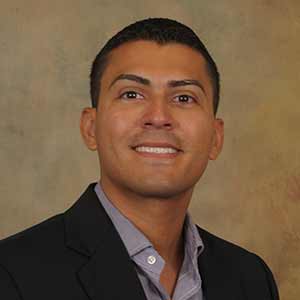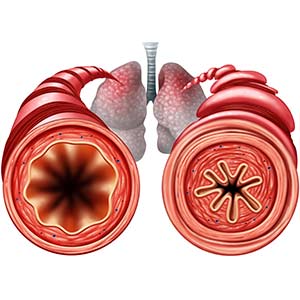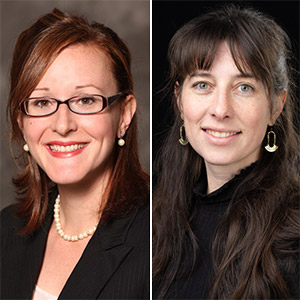Bill Suk, Ph.D., head of the NIEHS Hazardous Substances Research Branch, brought his passion for improving children’s environmental health (CEH) to Thailand, where he spent six months through a U.S. Fulbright Scholar Program award.
At the Chulabhorn Research Institute (CRI) in Bangkok, Suk organized a major meeting addressing CEH problems in the region. He also lectured on international and public health, and mentored early- and mid-career researchers.
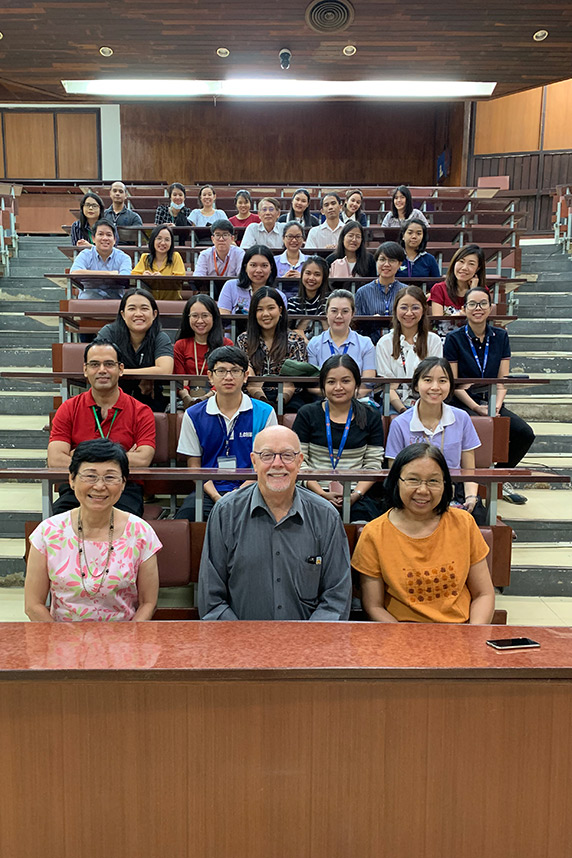 Suk, front center, with students and faculty at Khon Kaen University in the Isan region of northeast Thailand. (Photo courtesy of Bill Suk)
Suk, front center, with students and faculty at Khon Kaen University in the Isan region of northeast Thailand. (Photo courtesy of Bill Suk)And through Suk’s collaboration with the United Nations Children’s Fund (UNICEF), the organization has now made CEH one of its priorities.
As founding director of the NIEHS Superfund Research Program (SRP), Suk has helped to establish collaborative research centers at universities across the United States. That experience — bringing together experts from different backgrounds to work on major public health challenges — helped him as he advised founders of new programs in Thailand.
Merging disciplines to solve problems
“If you are going to address complicated CEH issues, you have to do so in an interdisciplinary way,” said Suk. “I worked with program leaders to explain how the SRP is a good model for research and training because it merges different disciplines together to address difficult problems.”
In Bangkok, he organized an Asia-Pacific CEH meeting May 27-28. Participants from 13 countries assessed health risks, brainstormed potential solutions, and highlighted opportunities for collaboration.
“This workshop was part of long-range planning for CEH in the region, including Thailand,” said Suk. “It brought together over 50 experts in the field and will help us shape the agenda for a larger international CEH conference in Bangkok in 2020.”
Broadening the NIEHS network
Suk also participated in a UNICEF-sponsored workshop in Seoul, South Korea, and worked with the organization’s East Asia and Pacific Regional Office in Bangkok. Through those collaborations, he helped to expand UNICEF’s strategic plan to emphasize effects of environmental exposures in children.
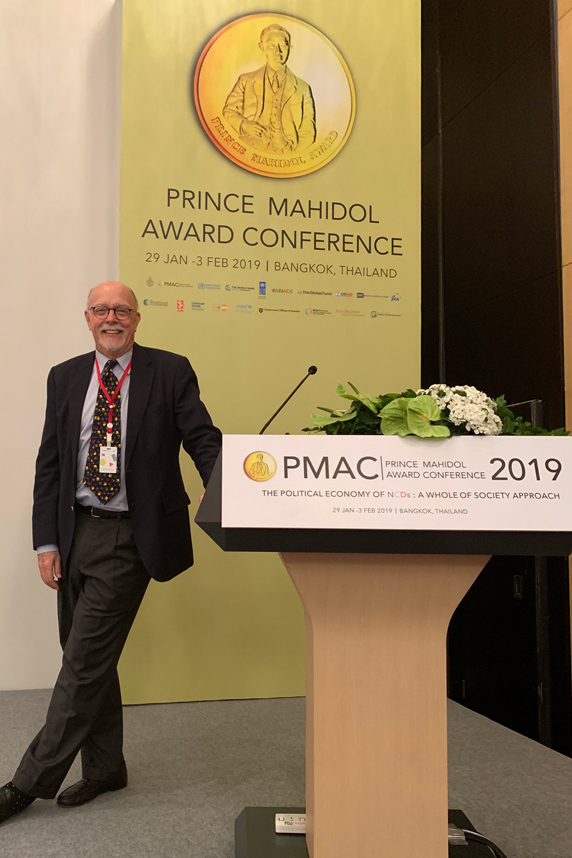 At the Prince Mahidol Award Conference, Suk spoke to public health leaders about environmental exposures and noncommunicable diseases in children. (Photo courtesy of Bill Suk)
At the Prince Mahidol Award Conference, Suk spoke to public health leaders about environmental exposures and noncommunicable diseases in children. (Photo courtesy of Bill Suk)“In addition to providing programmatic feedback to help focus their new strategic plan on CEH, I also put UNICEF in touch with CEH-related researchers and organizations in the region that they weren’t previously working with,” said Suk. “I think it will lead to lasting and meaningful relationships between NIEHS and UNICEF.”
According to Suk, UNICEF was particularly interested in collaborating with the World Health Organization (WHO) Collaborating Centres for Children’s Environmental Health, of which NIEHS is a member. Suk works with the Centres to share research and inform decision-makers about how preventing children’s exposure to harmful chemicals can reduce their health risks.
“I heard a lot of new perspectives and CEH needs in the region while also broadening the NIEHS network to address environmental exposures and children’s health,” Suk said about his recent trip. “I identified research needs while emphasizing the importance of translating basic research in a way that benefits the most people.”
Suk’s work in Thailand dates back to 2002, when he coordinated the “International Conference on Environmental Threats to the Health of Children: Hazards and Vulnerability.” The conference was organized by WHO, hosted by CRI, and sponsored in part by NIEHS.
(Sara Amolegbe is a research and communication specialist for MDB Inc., a contractor for the NIEHS Superfund Research Program.)
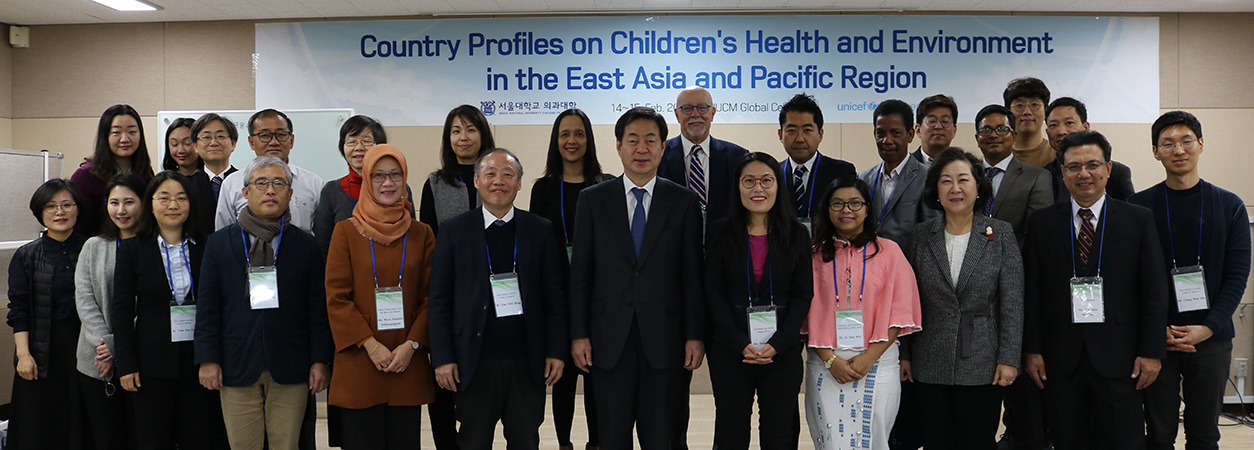
The UNICEF-sponsored meeting in Seoul focused on major CEH concerns and research needs in the region. Suk brought his expertise and experience to the session and suggested new partnerships to help address problems identified by meeting participants.







